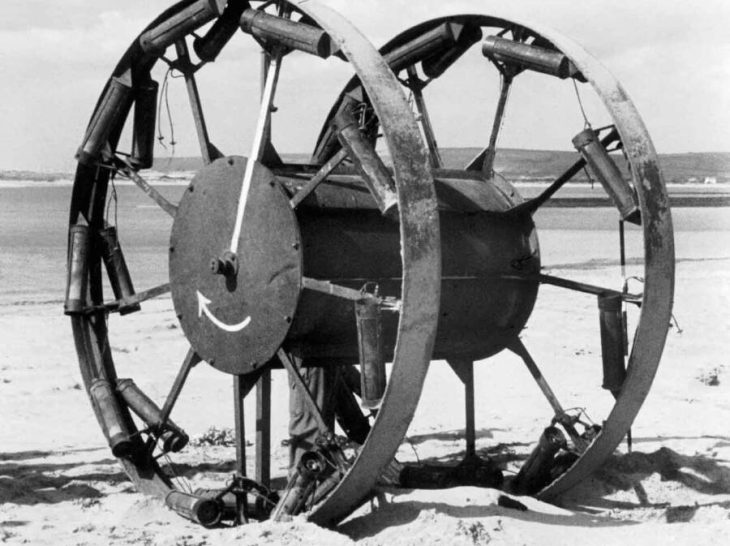
Word of the Day: Panjandrum
Today’s word of the day, thanks to the Words Coach website (https://www.wordscoach.com/dictionary), is panjandrum. Panjandrum is a noun that describes “a self-important or pretentious official” (https://www.dictionary.com/browse/panjandrum).
Merriam-Webster says, “Panjandrum looks like it might be a combination of Latin and Greek roots, but in fact it is a nonsense word coined by British actor and playwright Samuel Foote around 1755. According to the Oxford English Dictionary, Foote made up a line of gibberish to ‘test the memory of his fellow actor Charles Macklin, who had asserted that he could repeat anything after hearing it once.’ Foote’s made-up line was, ‘And there were present the Picninnies, and the Joblillies, and the Garyulies and the Grand Panjandrum himself, with the little round button at the top.’ Some 75 years after this, Foote’s passage appeared in a book of stories for children by the Anglo-Irish writer Maria Edgeworth. It took another quarter century before English speakers actually incorporated panjandrum into their general vocabulary” (https://www.merriam-webster.com/dictionary/panjandrum).
Etymonline.com agrees with M-W: “mock name for a pompous personage of power and pretension, 1880, a word said to have been invented in 1755 by Samuel Foote (1720-1777) in a long passage full of nonsense written to test the memory of actor Charles Macklin (1697-1797), who said he could repeat anything after hearing it once” (https://www.etymonline.com/word/panjandrum). But the OED says, “The earliest known use of the noun panjandrum is in the 1820s. OED‘s earliest evidence for panjandrum is from 1825, in the writing of Maria Edgeworth, novelist and educationist” (https://www.oed.com/dictionary/panjandrum_n?tab=factsheet#32173825).
But in the Wiki for Samuel Foote, the editors write, “When he found himself out of work in November 1754, Foote rented the Haymarket theatre and began to stage mock lectures. Satirizing Charles Macklin’s newly opened school of oratory, these lectures created a sort of theatrical war, especially when Macklin began to appear at the lectures himself. At one particular lecture, Foote extemporized a piece of nonsense prose to test Macklin’s assertion that he could memorise any text at a single reading.
“‘So she went into the garden to cut a cabbage-leaf to make an apple-pie; and at the same time a great she-bear, coming up the street, pops its head into the shop. “What! No soap?” So he died, and she very imprudently married the barber; and there were present the Picninnies, and the Joblillies, and the Garyulies, and the grand Panjandrum himself, with the little round button at top, and they all fell to playing the game of catch-as-catch-can till the gunpowder ran out at the heels of their boots.’
“This introduced the nonsense term “The Grand Panjandrum” into the English language and the name was adopted for the Panjandrum or Great Panjandrum, an experimental World War II-era explosive device” (https://en.wikipedia.org/wiki/Samuel_Foote). But the quotation comes from Maria Edgeworth’s 1820 novel Harry and Lucy concluded, so taking the word back to 1755 is actually a bit of a guess (https://en.wikisource.org/wiki/The_Grand_Panjandrum). Edgeworth was not born until 1768, so how would she have known the quotation?
But Panjandrum is also the name of a Broadway musical from 1893. It was written by Woolson Morse (music) and J. Cheever Goodwin (book), and it was produced by and starred DeWolf Hopper. Having read the synopsis, I have to say that I have no plans on ever trying to catch Panjandrum.
And Panjandrum, or the Great Panjandrum, was also the name of a bomb delivery system that was invented, sort of, by the British in WWII. According to the wiki, it “was a massive, rocket-propelled, explosive-laden cart designed by the British military during World War II. It was one of a number of highly experimental projects, including Hajile and the Hedgehog, that were developed by the Admiralty’s Directorate of Miscellaneous Weapons Development (DMWD) in the final years of the war. The Panjandrum was never used in battle” (https://en.wikipedia.org/wiki/Panjandrum).
“According to History Collection, a BBC documentary described what happened next. ‘At first all went well,’ the documentary reported. ‘Panjandrum rolled into the sea and began to head for the shore. Then a clamp gave. First one, then two more rockets broke free. Panjandrum began to lurch ominously.’ The rocket-fired wheel spun toward Lt. Louis Klemantaski, a Royal Navy photographer. Gazing through a telescopic lens, Klemantaski thought the weapon was further away – so he kept filming. But the roar of the Panjandrum forced Klemantaski to look up. When he did, he saw a 10-foot wheel flying toward him, rockets shooting off in every direction. Klemantaski ran for his life. The admirals and generals who had gathered to watch the test dove for cover. ‘Panjandrum was now heading back to the sea but crashed on the sand where it disintegrated in violent explosions, rockets tearing across the beach at great speed.’ An officer’s dog took off after a loose rocket. The admirals agreed that the Panjandrum was a failure” (https://allthatsinteresting.com/panjandrum).
If you ever decide you just have to use this word in your conversation, you should know that the emphasis is on the second syllable, which means that the pronunciation is / pænˈdʒæn drəm /, but the vowel in the first syllable does not become a schwa, despite the general rule.
And, of course, you’ll want someone to use the term about. I can think of about 550 people in Washington, DC, who fit the description. Today’s image is of the Great Panjandrum (https://allthatsinteresting.com/panjandrum). It looks like something a kid would dream up for his Steam Punk fan fic.